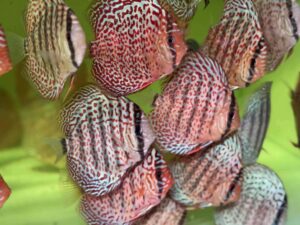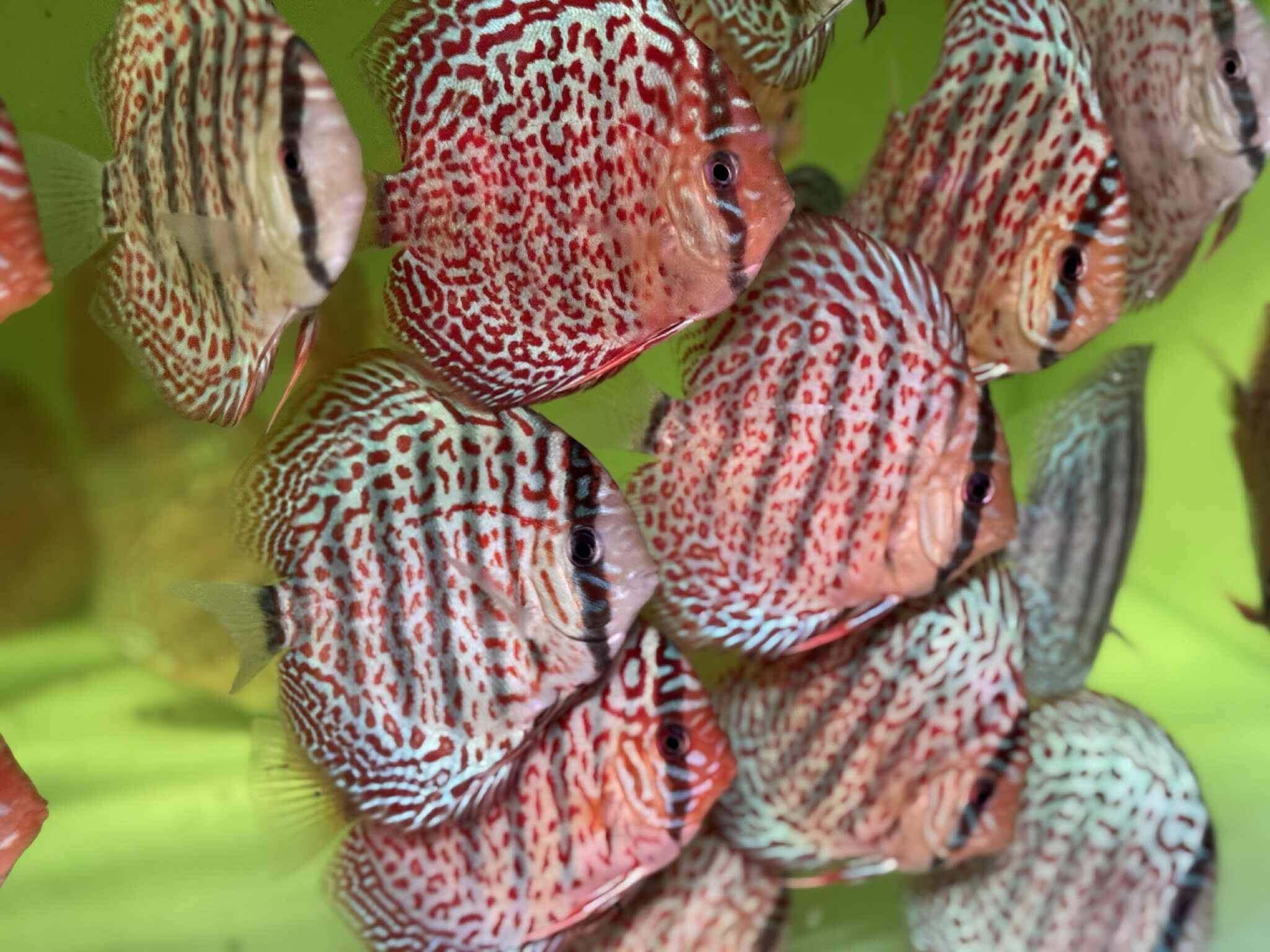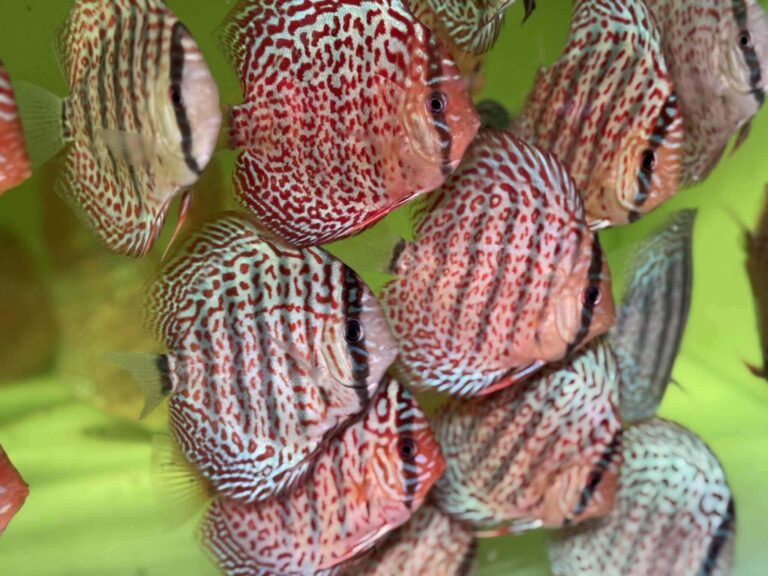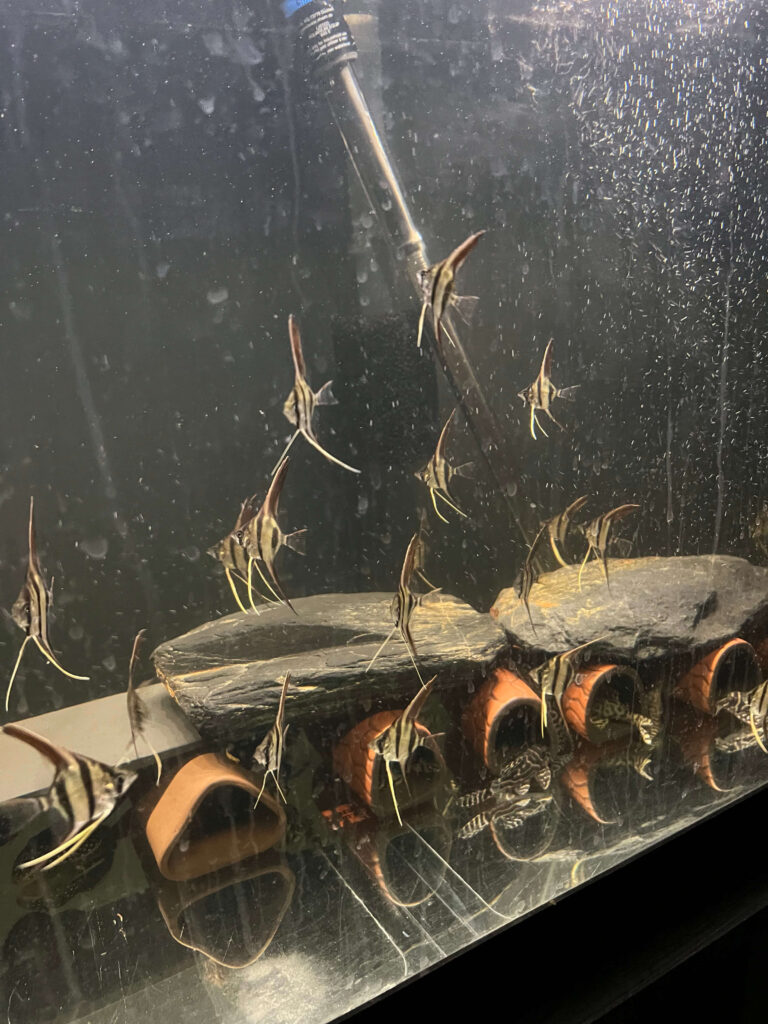Infor
Gallery
Description
Gallery


Description
Key Aspects of Discus Fish Care:
Water Parameters:
Temperature: Discus prefer warmer water than typical freshwater fish, generally ranging from 82°F to 86°F (28°C to 30°C).
pH: Discus thrive in soft, slightly acidic water. A pH range of 6.0 to 7.0 is generally recommended, although captive-bred discus may adapt to slightly higher pH levels if the water is kept clean and stable.
Hardness: They prefer soft water, with a total hardness between 1° and 4° dKH (18 to 70 ppm).
Water Quality: Maintaining pristine water quality is crucial. Discus are sensitive to ammonia, nitrite, and fluctuations in water parameters.
Water Changes: Frequent water changes are essential to remove waste and maintain optimal water conditions. Weekly changes of 10% to 25% are highly recommended.
Filtration: A high-quality filtration system is vital to keep the water clean and stable. Canister filters are often preferred.
Tank Requirements:
Tank Size: A minimum of 55 gallons (210 liters) is recommended for a small group, with larger tanks (e.g., 75 gallons or more) being ideal for providing adequate space. Discus grow quite large, reaching up to 8 inches in diameter.
Tank Décor: Provide ample hiding places and create a natural environment with driftwood, rocks, or plants that can tolerate higher temperatures. Good choices include Anubias, Java fern, and Bacopa.
Lighting: Discus prefer subdued lighting, similar to their natural habitat in the Amazon. Avoid harsh, bright lighting.
Substrate: Sand or fine to medium-grade, smooth-surfaced gravel is recommended as discus forage along the bottom.
Diet and Feeding:
Diet: Discus are omnivores and thrive on a varied diet. Offer high-quality pellets, flakes, and supplemental foods like bloodworms, brine shrimp, and daphnia.
Feeding Frequency: Feed multiple times a day in small portions. Adult discus can be fed twice daily, while younger fish benefit from more frequent feedings.
Behavior and Compatibility:
Social Behavior: Discus are social and thrive in groups. Keeping them in pairs or small groups (4-6 fish) is recommended.
Tankmates: Choose peaceful, non-aggressive species that can tolerate similar water parameters and won’t outcompete them for food. Compatible options include cardinal tetras, rummy nose tetras, and some corydoras catfish.
Health and Wellness:
Monitoring: Regularly check your discus for signs of stress or illness, such as changes in appetite or appearance.
Preventative Measures: Regular water changes, a balanced diet, and quarantine of new fish are important preventative measures.
Common Illnesses: Discus are susceptible to illnesses like “hole-in-the-head” disease and discus bloat. Prompt diagnosis and treatment by a knowledgeable aquatic specialist are crucial.
Important Notes:
Discus fish can live up to 15 years or longer with proper care.
Wild-caught discus may have more specific needs than captive-bred varieties.
Consistency in water parameters and a stable environment are paramount to their well-being.
Discus are sensitive to changes, so avoid sudden fluctuations.
By carefully considering these factors and providing a well-maintained environment, you can enjoy the beauty and fascination of keeping discus fish.
New Product
- 40$
- 20$
- 6$
- 30$







